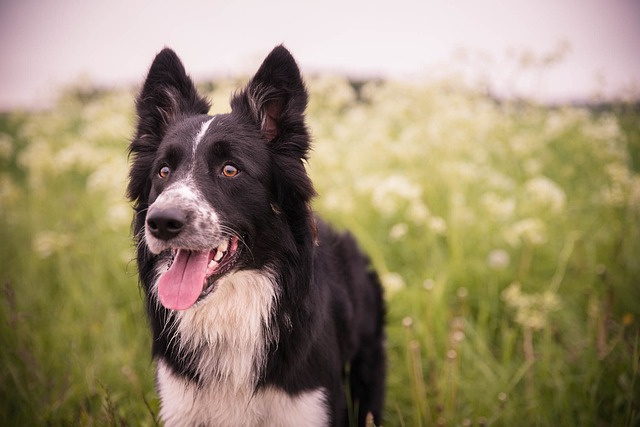
How can I tell if my dog's heatstroke is serious
Let’s be real: It’s a sticky August morning in Los Angeles, and you took your 2-year-old Golden Retriever, Max, for a walk a little later than usual
That fluffy black-and-white pup with the intense stare might have caught your eye at the shelter or breeder’s—Border Collies are stunning, no doubt. But before you bring one home, let’s talk about what makes this breed tick. They’re not just “smart dogs”—they’re working dogs, born to herd, problem-solve, and stay on the move. For new owners, that means understanding their needs goes beyond the basics of food and walks.
Intelligence in Border Collies comes with a side of drive. Think of them as athletes who never skip leg day—mentally and physically. A bored Collie might start herding your kids (or your cat) or chewing through the couch. They need 60+ minutes of active play daily: fetch with a frisbee, agility courses in the backyard, or even “jobs” like carrying a backpack on walks. Apartment dwellers, take note: a small space can work, but you’ll need to step up the mental stimulation—puzzle toys, training sessions, or a trip to the dog park twice a day.
Training is non-negotiable, but it’s not about dominance. These dogs thrive on positive reinforcement: a treat, a game of tug, or enthusiastic praise when they nail a command. Harsh words or punishment? They’ll shut down. Start early—puppy classes help with socialization, which is key. Collies can be shy around new dogs or people if not exposed young, so enroll them in group sessions or arrange playdates with calm, friendly pups. Remember, consistency matters more than perfection; 10-minute daily sessions beat an hour of sporadic training.
 Legal and community norms play into care too. Most areas require up-to-date vaccines—rabies shots are mandatory in many places, and proof might be needed if you take them to dog parks or boarding facilities. When out and about, always carry poop bags—failing to clean up can earn fines, and it’s just good neighborly behavior. Some neighborhoods have leash laws, even in parks, so keep a sturdy leash handy. Collies love to chase squirrels, so an off-leash adventure without a secure fence is risky.
Legal and community norms play into care too. Most areas require up-to-date vaccines—rabies shots are mandatory in many places, and proof might be needed if you take them to dog parks or boarding facilities. When out and about, always carry poop bags—failing to clean up can earn fines, and it’s just good neighborly behavior. Some neighborhoods have leash laws, even in parks, so keep a sturdy leash handy. Collies love to chase squirrels, so an off-leash adventure without a secure fence is risky.
Family life with a Collie is rewarding but requires balance, and their health needs attention too. They bond deeply, which means separation anxiety can creep in—crate training (done gently) helps. If you work long hours, a dog walker or daycare is a must. With kids, supervise play to manage their herding nipping. Health-wise, watch for eye issues like CEA and hip dysplasia; annual vet checks and weekly brushing for their shedding coats are key.
At the end of the day, a Border Collie isn’t a “couch potato” breed. They’re partners—ready to hike, learn, and love fiercely, but only if you’re ready to match their energy. If you’re up for the challenge, you’ll gain a loyal friend who’ll impress you daily with their smarts. Just remember: they don’t fit every lifestyle, and that’s okay. Knowing what you’re signing up for is the first step to a happy life together.

Let’s be real: It’s a sticky August morning in Los Angeles, and you took your 2-year-old Golden Retriever, Max, for a walk a little later than usual

You're enjoying a summer afternoon at the park when you notice your dog has stopped panting and appears disoriented - their gums are bright red

Let’s paint the picture: You’re in your Denver apartment, watching your 4-year-old Boston Terrier, Ruby, plop down mid-play session with her favorite toy

Many dog owners notice their pets nails seem shorter after regular walks,but how much does this daily activity actually help?The answer depends on where you walk—concrete sidewalks or asphalt streets gently file nails as a dog's paws hit the ground

Most dog owners notice their pup scooting across the carpet at some point, but few connect it to impacted anal glands. These small sacs near a dog’s rectum secrete a scent for marking territory

Most vets agree that regular dog teeth cleaning is key to avoiding painful dental issues later. For healthy adult dogs, a professional cleaning at the vet’s office every 12 to 18 months usually works well.